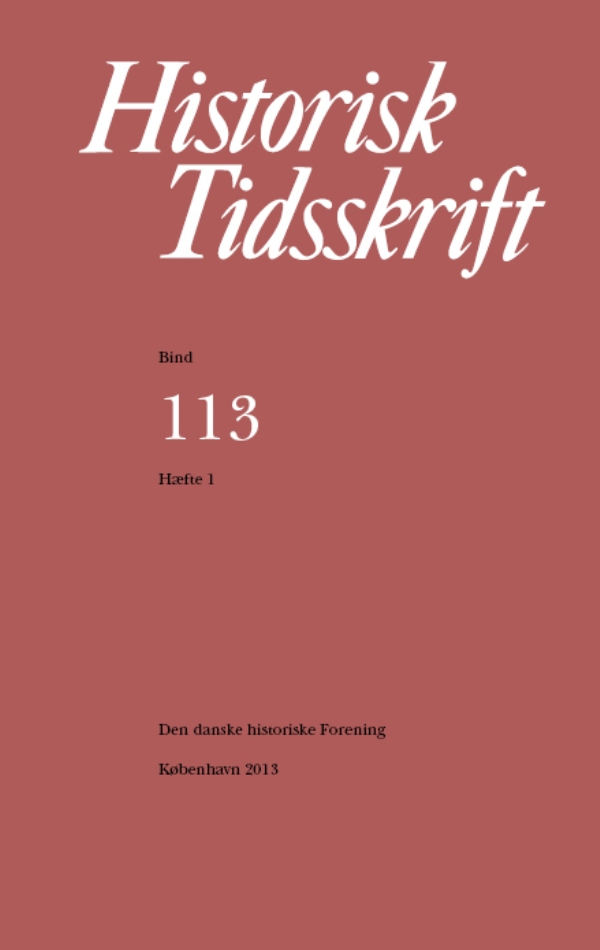Særlige grønlandske forhold ... Rum, ret og uægteskabelige børn i det koloniale Grønland
DOI:
https://doi.org/10.7146/ht.v113i1.56593Resumé
Making allowance for the special conditions there ... Space, Law and Illegitimate Children in Colonial GreenlandThe ‘legally fatherless’ appeared before the Danish public in the spring of 2010 as they formed an association aiming at securing children born out of wedlock in Greenland legal rights towards their biological father equal to the ones bestowed on Danish children. The media framed their situation as the result of the colonial system having discharged Danish men from their responsibilities towards their illegitimate children in Greenland; that is, as a token of colonial discrimination. The following year, a historical investigation was organized in order to identify differences in the legal position of children born out of wedlock in Greenland and in Denmark over the period 1914-1974. The present article, authored by one of the contributors to the report, investigates the rules concerning children born out of wedlock in Greenland at three historical moments: The earliest rules of 1782; the first modern regulation from 1914; and the first post-colonial Children’s Act from 1962. What legal and colonial differences were at stake? How may one interpret the changing regulation? The analysis draws attention to shifting problematizations of the ‘illegitimate’ children, associated with changes in the colonial context. At the same time, however, it is argued that the regulation reflects a continuous colonial rationality by which the particularities of the colonial space came to legitimize fundamental differences between colony and metropolis, and between population categories in Greenland.Downloads
Publiceret
Citation/Eksport
Nummer
Sektion
Licens
Ophavsret til bidrag i Historisk Tidsskrift tilhører forfatterne og Den danske historiske Forening som udgiver af Historisk Tidsskrift. For illustrationer gælder den ophavsret, som står anført i billedteksten. Ophavsretslovens almindelige bestemmelser gælder, hvilket vil sige, at ophavsretten gælder i 70 år efter forfatterens død. Bidrag i Historisk Tidsskrift må derfor, med forbehold for en ”moving wall” på tre år, frit downloades, læses, gemmes, anvendes og citeres (med kildeangivelse) i privat og videnskabelig sammenhæng, men de må ikke helt eller delvis genudgives af tredjepart, heller ikke i redigeret form, uden tilladelse fra forfatterne og Den danske historiske Forening. Henvendelse skal i så fald rettes til Historisk Tidsskrifts redaktion på histtid@hum.ku.dk.





